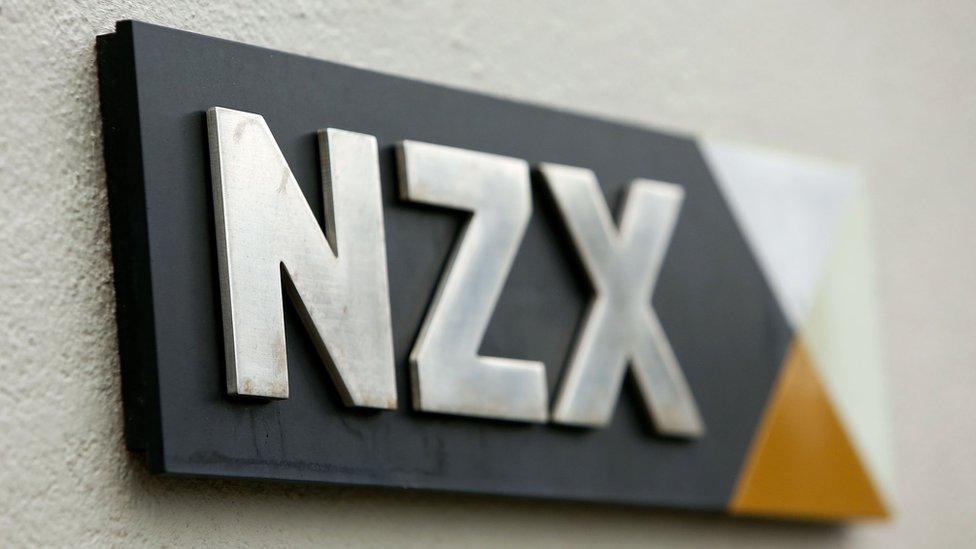NZ takes action over stock market cyber attacks
- Published

New Zealand's communications security bureau has been called in to help after its stock exchange was hit by cyber attacks for the fourth consecutive day.
The exchange failed to open as planned on Friday due to so-called "distributed denial of service" (DDoS) attacks.
The $135bn (£102bn) market, which is nearing a record high, has said the attacks came from overseas.
The exchange's website was overwhelmed by the cyber attacks, forcing it to halt trading.
“I can’t go into much more in terms of specific details other than to say that we as a government are treating this very seriously,” Finance Minister Grant Robertson said in a media briefing.
The stock market operator NZX said its networks had crashed due to the cyber attacks, which originated overseas.
“We are currently experiencing connectivity issues which appear similar to those caused by severe DDoS attacks from offshore this week,” NZX said after the market failed to open at 10am Wellington time.
Trading on the exchange eventually resumed three hours later.
EXPLAINED: What is a DDoS attack?
DDoS attacks are designed to knock a website offline by flooding it with huge amounts of requests until it crashes.
Such attacks are relatively simple in nature and rely on their sheer scale to be effective.
Scare tactics
In November New Zealand cyber-security organisation CertNZ issued an alert that emails were being sent to financial firms threatening DDoS attacks unless a ransom was paid.
The emails claimed to be from a well known Russian hacking group called Fancy Bear.
But CertNZ said at the time the threat had never been carried out, beyond a 30-minute attack as a scare tactic.
Other than saying that the attacks were from overseas, NZX has yet to comment on their source or whether any demands have been made.
In June, technology giant Amazon said its online cloud, which provides the infrastructure on which many websites rely, had fended off the largest DDoS attack in history.
The disruptions to trading in New Zealand have come at a particularly bad time for investors as it is currently in a busy company earnings season.